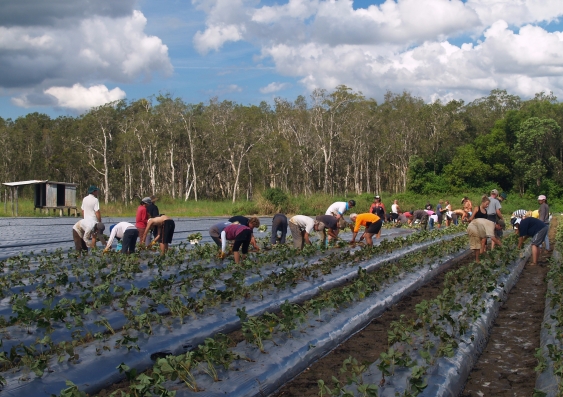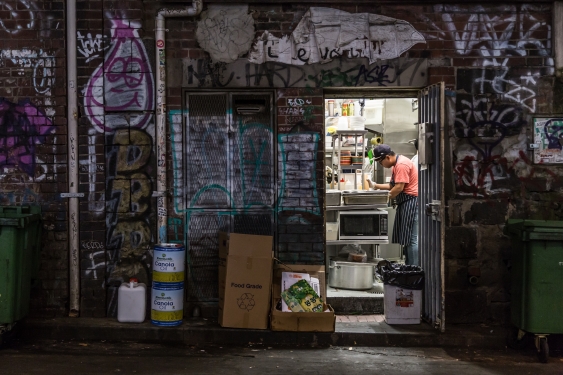Backpackers, international students suffer widespread wage theft, report finds
A national survey of temporary workers in Australia has uncovered widespread exploitation of backpackers and international students working in a range of industries.
A national survey of temporary workers in Australia has uncovered widespread exploitation of backpackers and international students working in a range of industries.

Wendy Frew
UNSW Media Office
9385 2481
w.frew@unsw.edu.au
Workplace exploitation of backpackers and international students in Australia is endemic and severe, a landmark study by UNSW Sydney and UTS has found.
One in three international students and backpackers are paid about half the legal minimum wage, according to a major new report, Wage Theft in Australia, the most comprehensive study of temporary migrants’ work and conditions in Australia.
The report draws on survey responses from 4,322 temporary migrants from 107 countries in all states and territories. It was authored by Laurie Berg, a senior law lecturer at UTS, and Bassina Farbenblum, a senior law lecturer at UNSW Sydney.
The report presents a bleak but much-needed national picture of the extent of wage theft among international students and backpackers in Australia, and how it varies across different nationalities, visas and industries, say the authors.
The study also dispels the myth that underpayment occurs simply because temporary migrants don’t know the minimum wage, says Bassina Farbenblum.
“We found the overwhelming majority of international students and backpackers are aware they are being underpaid. However, they believe few people on their visa expect to receive the legal minimum wage,” Farbenblum says.

Many overseas workers are paid in cash, including two in three waiters, kitchen-hands and food servers. Image: Shutterstock.
The study found 86 per cent of international students and backpackers earning up to $15 per hour believe that many, most or all other people on their visa are paid less than the basic national minimum wage.
Co-author Laurie Berg says wage theft is not confined to fruit and vegetable picking or convenience stores, nor is it confined to any nationalities.
“A fifth of every nationality was paid around half the legal minimum wage. For almost 40% of students and backpackers, their lowest paid job was in a cafe, restaurant or takeaway.”
Berg says the study also shows international students and backpackers encounter conditions that may constitute criminal forced labour.
In 91 cases, respondents had had their passports confiscated by employers; 173 respondents were required to pay upfront “deposits” of up to $1000 to secure a job in Australia; and 112 respondents had been asked to pay money back to their employer in cash after receiving their wages.
The study also found 44% of overseas workers are paid in cash, including two in three waiters, kitchen-hands and food servers. Half never or rarely receive a payslip.
The study raises urgent concerns about the actions and resourcing required of government, business, unions and other service providers to address the scale of non-compliance, says Farbenblum.
“It provides compelling evidence for expanded services that respond to temporary migrants’ experiences, as shared directly by them.”
Read the full report here.
Key points: ● A quarter of all international students earn $12 per hour or less and 43% earn $15 or less in their lowest paid job. ● A third of backpackers earn $12 per hour or less and almost half earn $15 or less in their lowest paid job. ● Workers from Asian countries including China, Taiwan and Vietnam receive lower wage rates than those from North America, Ireland and the UK. Chinese workers are also more likely to be paid in cash.
About the survey: ● Anonymous, online survey of 4,322 people who had worked in Australia on a temporary visa. ● Available in 12 languages as well as English. ● Focused on participants’ lowest paid job in Australia. ● 2392 respondents were international students; 1,705 were enrolled at a university and 523 at a vocational or English-language college. ● 1440 respondents were backpackers (Working Holiday Makers). ● The remainder worked in Australian on other temporary visas, including tourists.